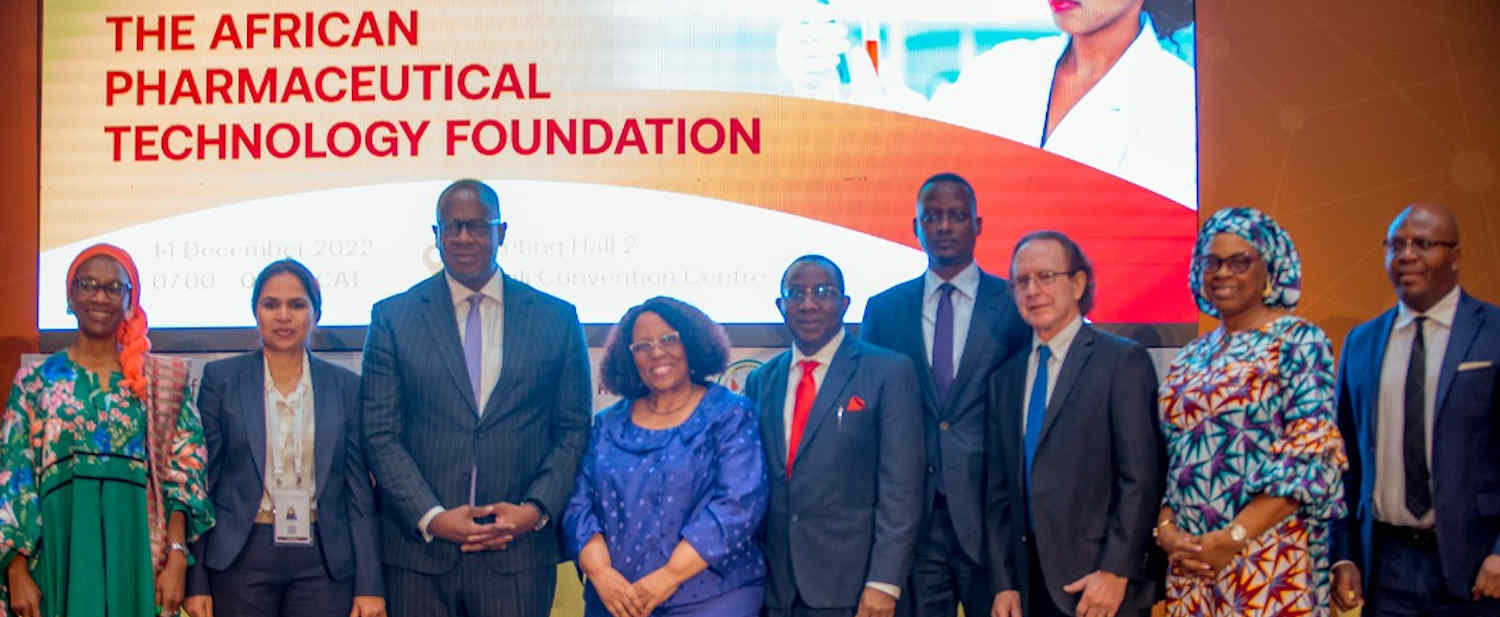
The African Development Bank Group has formally introduced its new initiative that will join hands with the African Union to boost Africa’s capacity to produce drugs, vaccines, diagnostics, and therapeutics all along the value chain, to help build its pharmaceutical sector.
The African Pharmaceutical Technology Foundation (APTF) was the focus of a forum hosted by the African Development Bank under the theme: “Technology Access for Pharmaceutical Manufacturing: The African Pharmaceutical Technology Foundation.” The event was part of the 2nd International Conference on Public Health in Africa in Kigali, Rwanda, on 14 December.
According to the African Development Bank, the continent imports more than 70% of the medicines it needs at the cost of $14 billion annually. Changing the game to enable African countries develop their capacity to manufacture pharmaceutical products has public health, strategic and economic rationales.
“This new initiative comes as a solution, since most [African] countries still face challenges in receiving [medicines] on time,” Dr. Yvan Butera, Rwandan Minister of State for Health, commented. The Foundation, hosted by the Government of Rwanda in Kigali, is expected to commence operations in early 2023.
In his opening remarks, Mr. Solomon Quaynor, Vice-President for Private Sector, Infrastructure and Industrialisation at the African Development Bank Group, said Covid-19 had exposed the gaps in Africa’s health care system.
“The Covid-19 pandemic has exposed the fragility of global health systems and the gaps in the production of critical drugs on the continent.” He added: “The APTF is a ground-breaking institution that will significantly enhance Africa’s access to technologies that underpin the manufacturing of pharmaceutical products.”
Presenting the APTF at the event, Prof. Padmashree Gehl Sampath, Special Adviser on pharmaceuticals and health infrastructure to Dr. Akinwumi Adesina, President of the African Development Bank Group, stressed that the Foundation was designed to help African countries bridge the technology gaps in sustainable domestic manufacturing.
Prof. Sampath said: “Pharmaceutical companies in Africa have three specific impediments to technology access: access to technology and related know-how for production, mobilization of domestic resources for technological upgrading, and the lack of possibilities for horizontal and vertical product diversification. Many technological risks need to be indemnified to build Africa’s pharmaceutical sector, including shifting away from a product-by-product approach which puts African companies at risk.”
The co-chair of the International Negotiating Body of the World Health Organization (WHO) on Pandemic Prevention, Preparedness and Response, Dr. Precious Matsoso, reflected on how important technology issues are for future pandemic preparation. She said establishing the African Pharmaceutical Technology Foundation “would provide the much-needed support to address technology barriers for equitable access.”
Describing the establishment of the Foundation as “timely,” given the experience of Covid-19, Dr. Richard Hatchett, Chief Executive Officer of the Coalition of Epidemic Preparedness Initiative, stressed that the initiative “will help in saving lives on the continent”.
The Foundation, approved by the African Development Bank’s Board of Directors in June 2022, is expected to boost Africa’s access to technology for manufacturing the full range of pharmaceutical products, focusing on building supply chains and expanding access to building block technologies of various kinds.
The Foundation will also serve as a transparent intermediator advancing and brokering the interests of the African pharmaceutical sector on the global stage, to enhance access to proprietary technologies, know-how, and related industrial processes, through licensing and other market-based and non-market mechanisms.
The WHO, the Coalition on Epidemic Preparedness, the South Centre, Geneva, and the Federal Ministry for Economic Cooperation and Development of Germany have expressed keen interest in working with the Foundation in the coming year.
Another panelist, Prof. Carlos Correa, Executive Director of South Centre, Geneva, said it was important for Africa to have its own framework that will allow its pharmaceutical industry to develop. He said: “Intellectual property confers monopolies, and these monopolies give rights to property owners to control the sharing of technologies. Creating the capacity to facilitate timely technology transfer to Africa is important.”
Panelists stressed the need to establish partnerships between African pharmaceutical companies and their counterparts in other continents, such as Europe.
Brigit Pickel, the Director General for Africa in the Germany Federal Ministry for Economic Cooperation and Development, said Covid-19 brought the focus back on how local manufacturing of crucial health products can be improved. Germany welcomes the setting up of the APTF and its vital role in addressing the bottlenecks in the technology and the market development side, she added.
Prof. Fredrick Abbott, Edward Ball Eminent Scholar, Florida State University, USA, spoke about how to truly create a successful pharmaceutical sector: “You need a focus on intellectual property management in the broad sense of the word…there also needs to be a focus on promoting joint ventures such as those that have facilitated the creation of many Covid-19 vaccines.”
Source: afdb.org
Share this news
This Year’s Most Read News Stories

Will Tanzania agree to Starlink Internet Service?
Will the Tanzania government let Starlink, the world-famous internet service provider, operate in the country?Continue Reading

Zanzibar Airport Authority to audit ground handlers
Unguja. The Zanzibar Airports Authority (ZAA) is set to conduct an audit on ground handling companies that currently operate at the Abeid Amani Karume Airport with effect from Monday. The week-long audit is set to include Transworld, ZAT and the newcomer Dnata Zanzibar who were licensed in June plus exclusive rights to manage Terminal 3 building by ZAA.Continue Reading

Zanzibar’s tourism body chairman Rahim Bhaloo resigns
Bhaloo, who is also Chairman of the Zanzibar Commission for Tourism (ZCT), cited pressing family issues as the reason for his departure.Continue Reading










